Mental health projects receive international award recognition
Two of our recent mental health projects have received award recognition at this year’s Design & Health International Academy Awards.
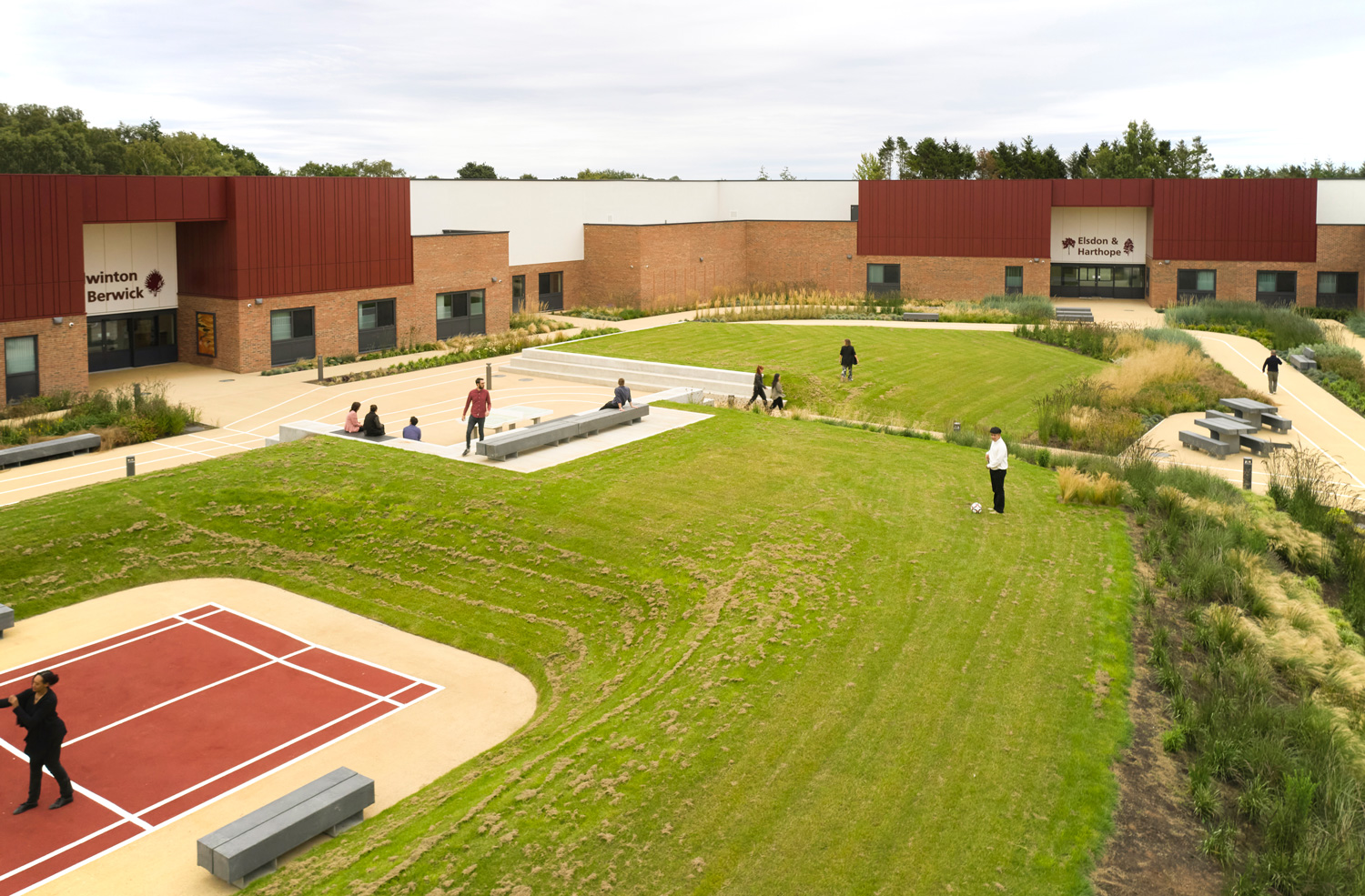
Presented at the 13th Design & Health World Congress in Milan, Italy, the awards recognise the design and development of salutogenic environments that support health, wellbeing and quality of life around the world.
Sycamore at Northgate Park Hospital received the Mental Health Project Award, an accolade recognising a new mental health facility that demonstrates an effective reconciliation between operational requirements for security and supervision, and the imperative for a civilizing and humane environment that supports therapeutic intervention. Kimmeridge Court Eating Disorders Unit, was Highly Commended in the same category.
Sycamore is a new medium secure mental health facility at the heart of the redevelopment of Northgate Park Hospital in Northumberland, UK, providing inpatient accommodation for 72 male patients with a range of forensic mental health needs. Developed around the concept of a ‘village campus’, the building provides a wide variety of indoor and outdoor settings for relaxation and activity, ensuring a meaningful day for patients. Six patient wards are paired together and arranged around a large recreation courtyard. This forms a secure boundary without the need for high fences and the feeling of confinement they can create. With rich landscaping and integrated security measures, this shared space for activity and wellbeing creates a familiar and normalised setting for patient recovery.
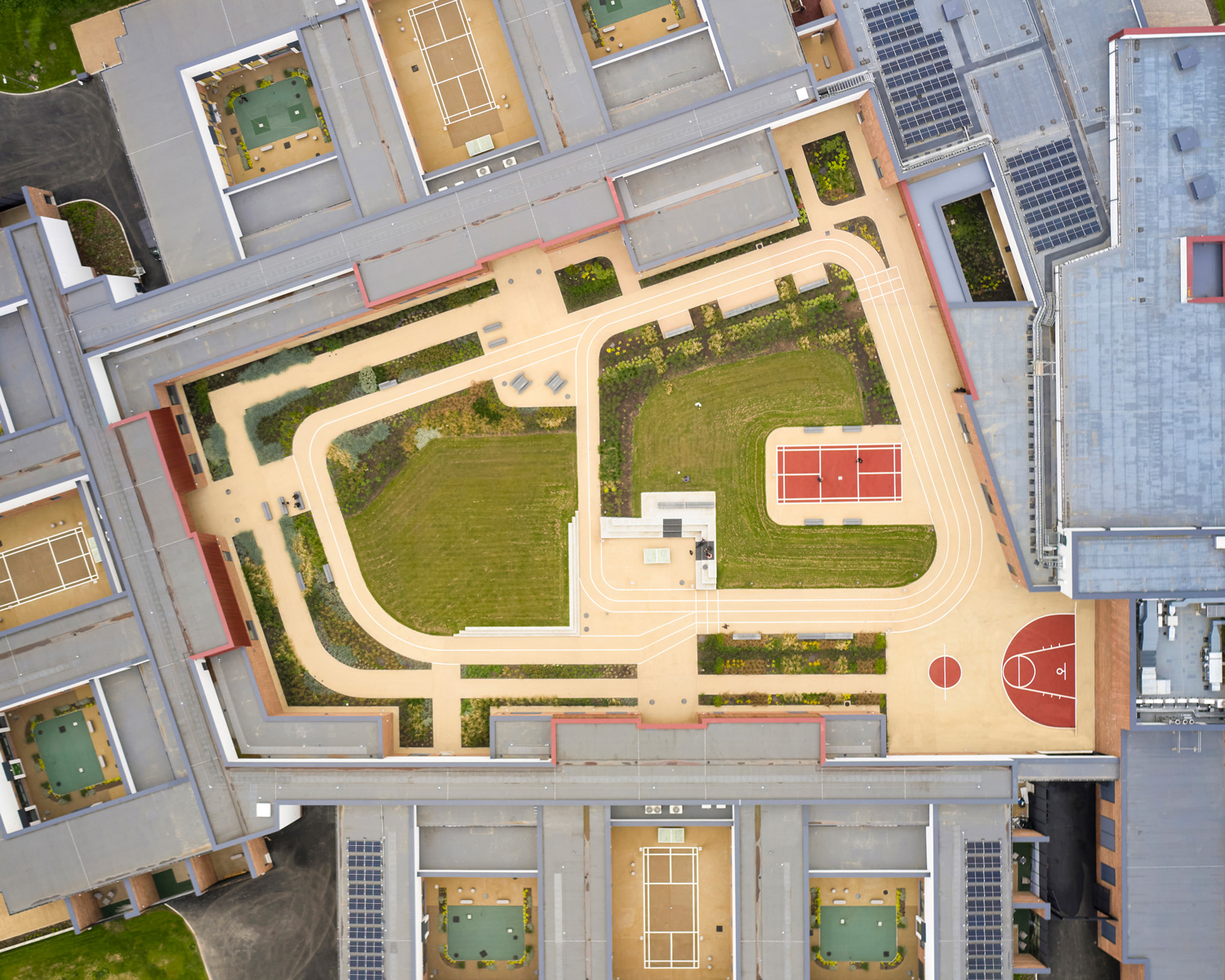
Sycamore provides a choice of open or private spaces for activity and wellbeing, to ensure access to outside space is inclusive.
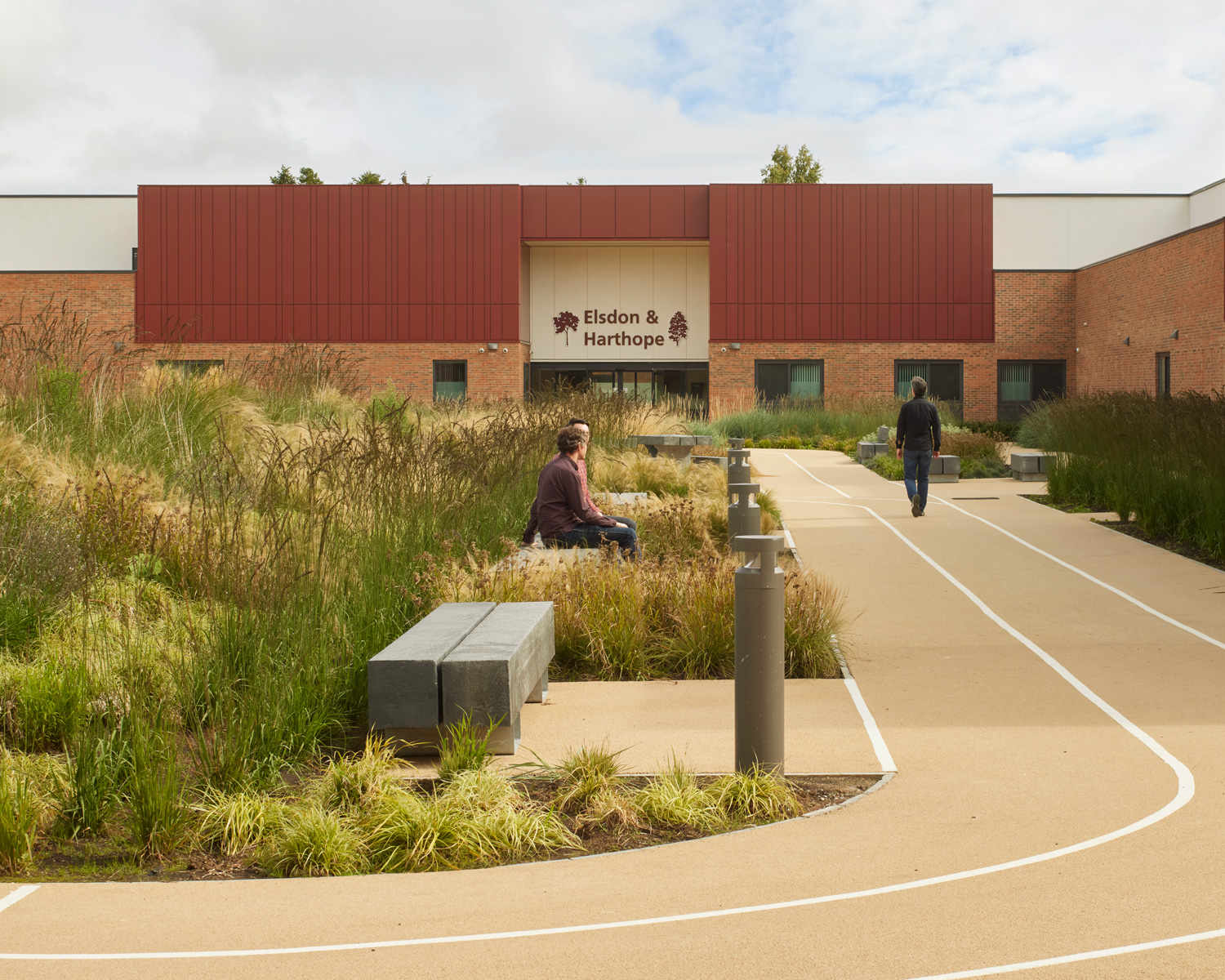
The recreation courtyard is separated into a ‘passive zone’ for rest and refuge, and an ‘active zone’ for activity and fitness.
Kimmeridge Court in Dorset, UK, has been carefully crafted to preserve the quality of its outstanding natural setting and to create a uniquely private and therapeutic environment for the treatment of patients with eating disorders. An innovative root-protecting foundation design has enabled the retention of mature trees remarkably close to the new building, with the bedroom accommodation and day spaces offering therapeutic views to the peaceful garden and surrounding woodland. Through close consultation with clinical staff, the facilities have been designed to enable patients to re-establish a positive relationship with food and exercise. This includes a layout which enables observation to be maintained with efficient staffing levels, without patients feeling that their privacy has been compromised.
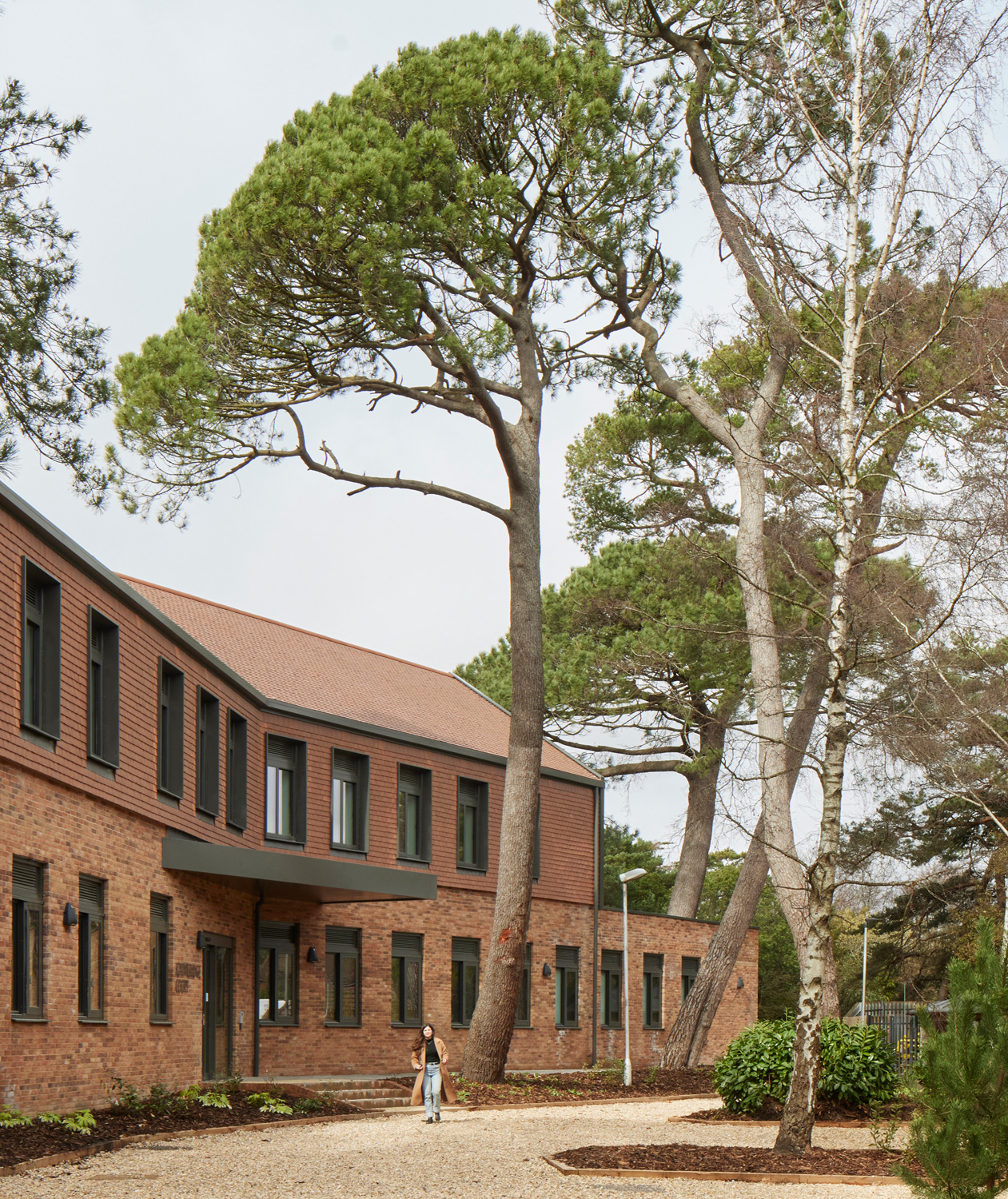
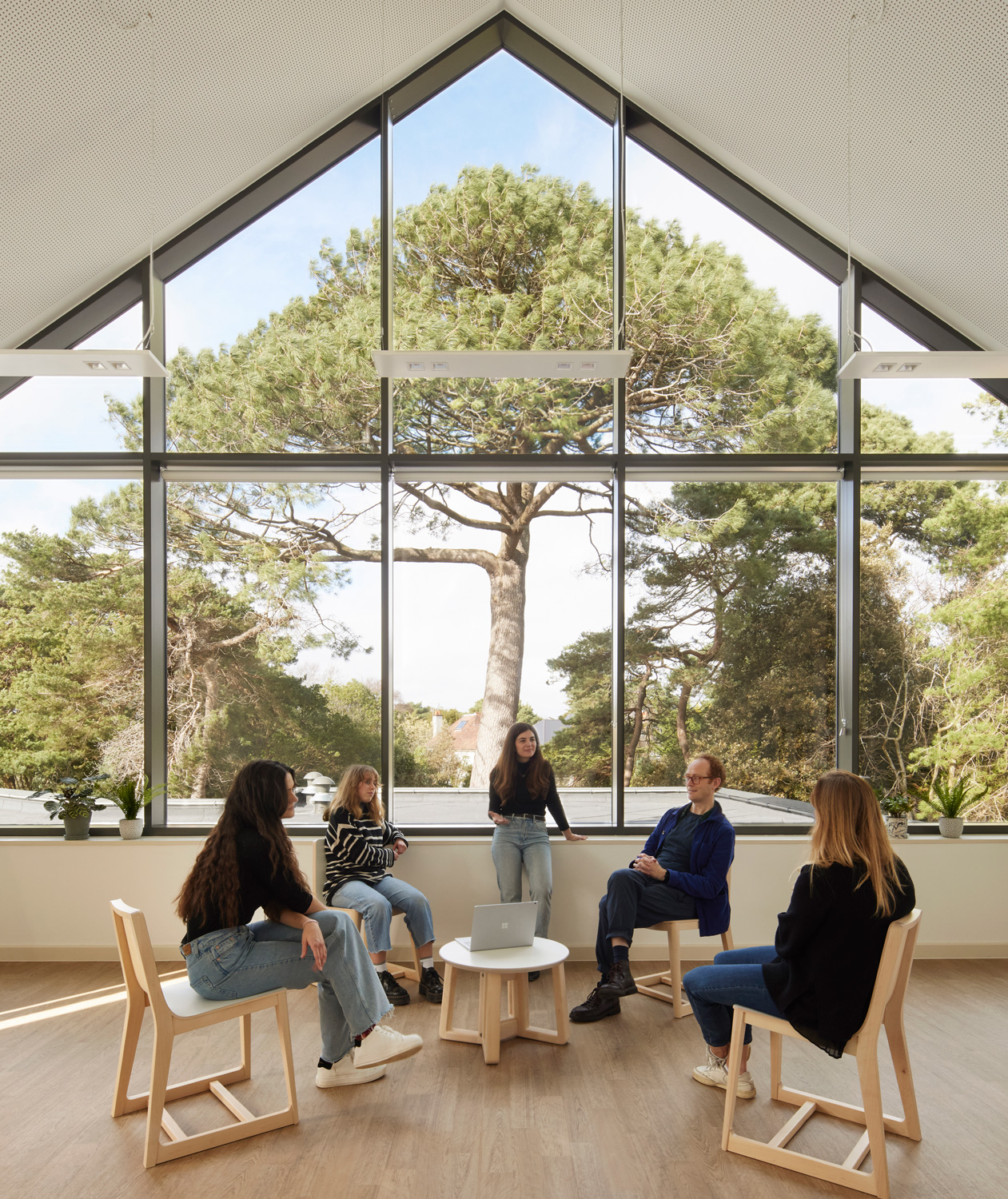
Kimmeridge Court has been designed to take full advantage of the quality of its natural context.
We are really pleased to receive this recognition from the International Academy, particularly with the attention they give to salutogenic design, and the broad determinants of health and wellbeing. In different ways, these two projects reflect our approach to patient-centred design, integrating architecture and landscape to create therapeutic environments for recovery.
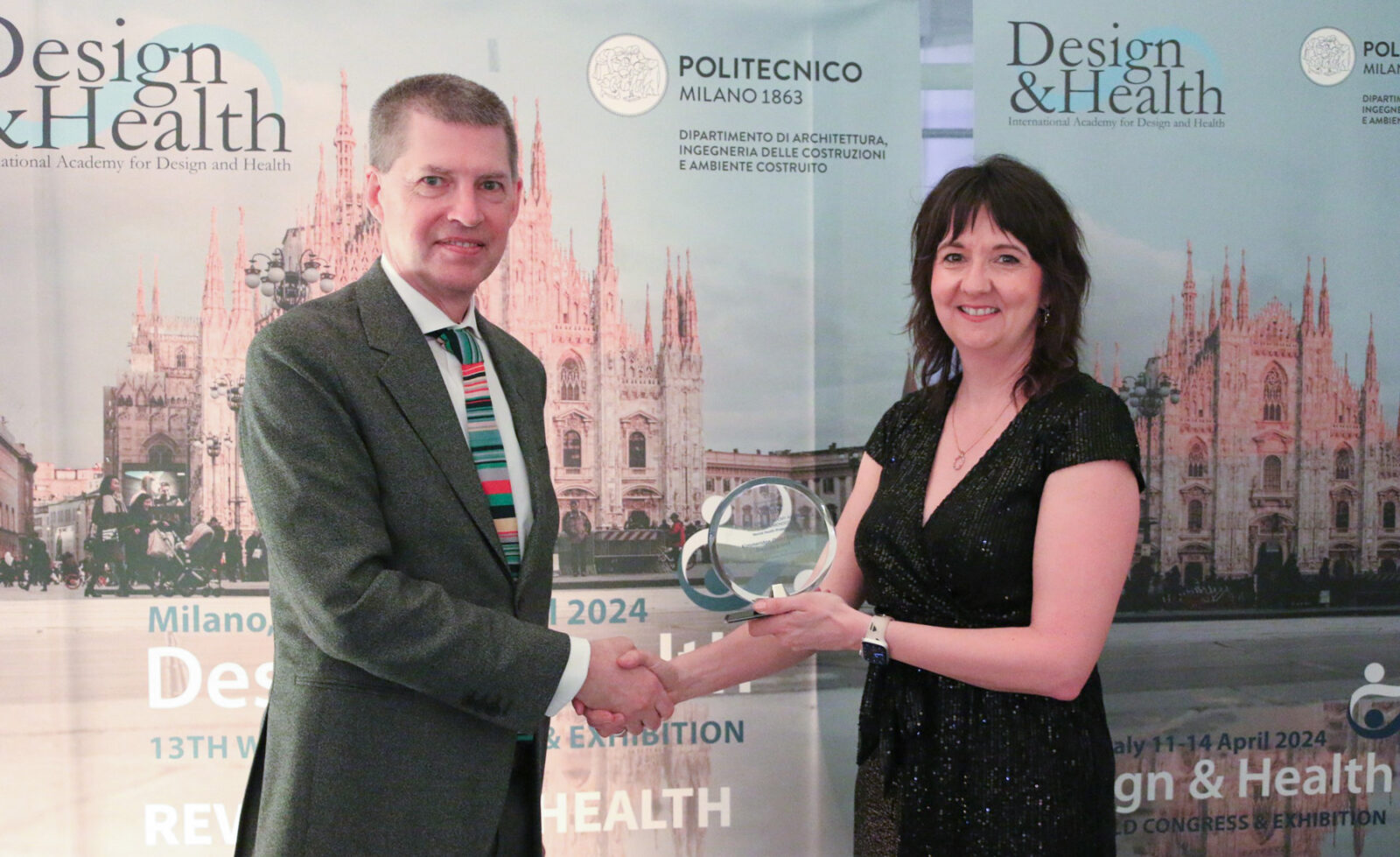
Lianne Knotts accepts the awards at the World Congress on Design and Health.